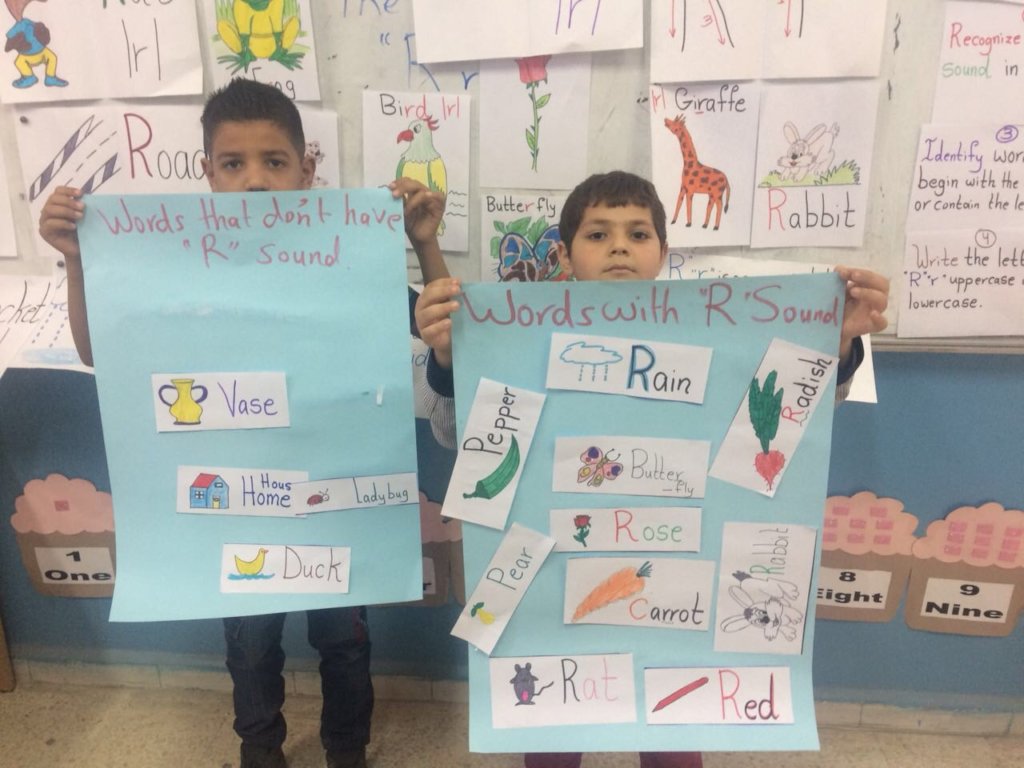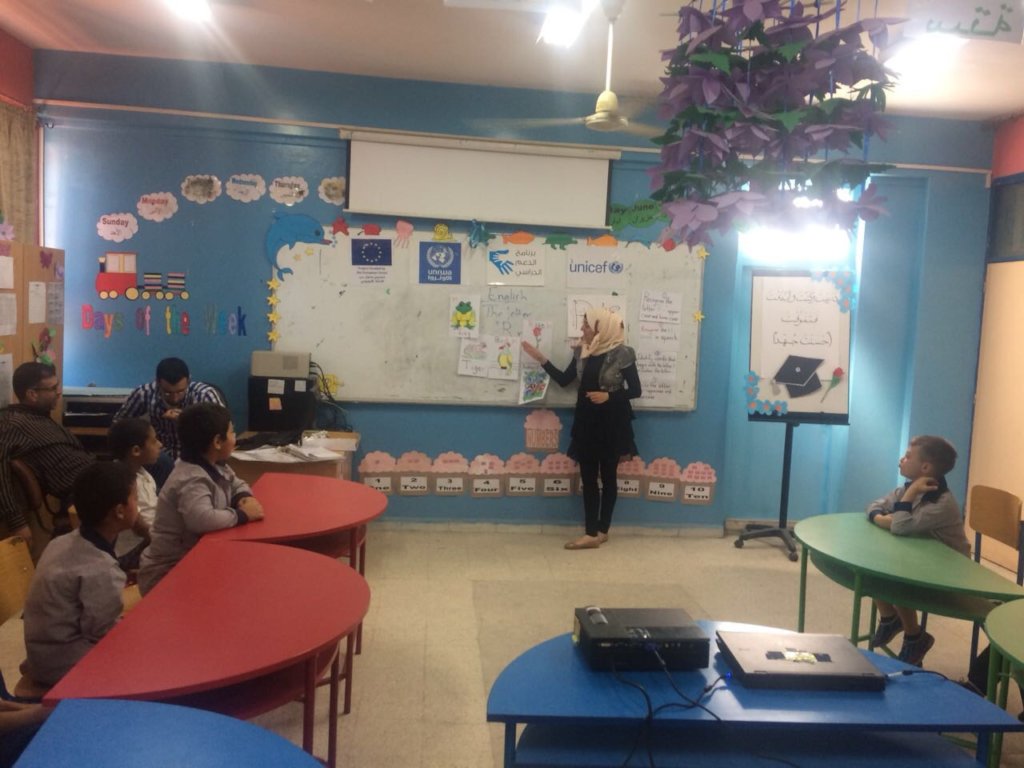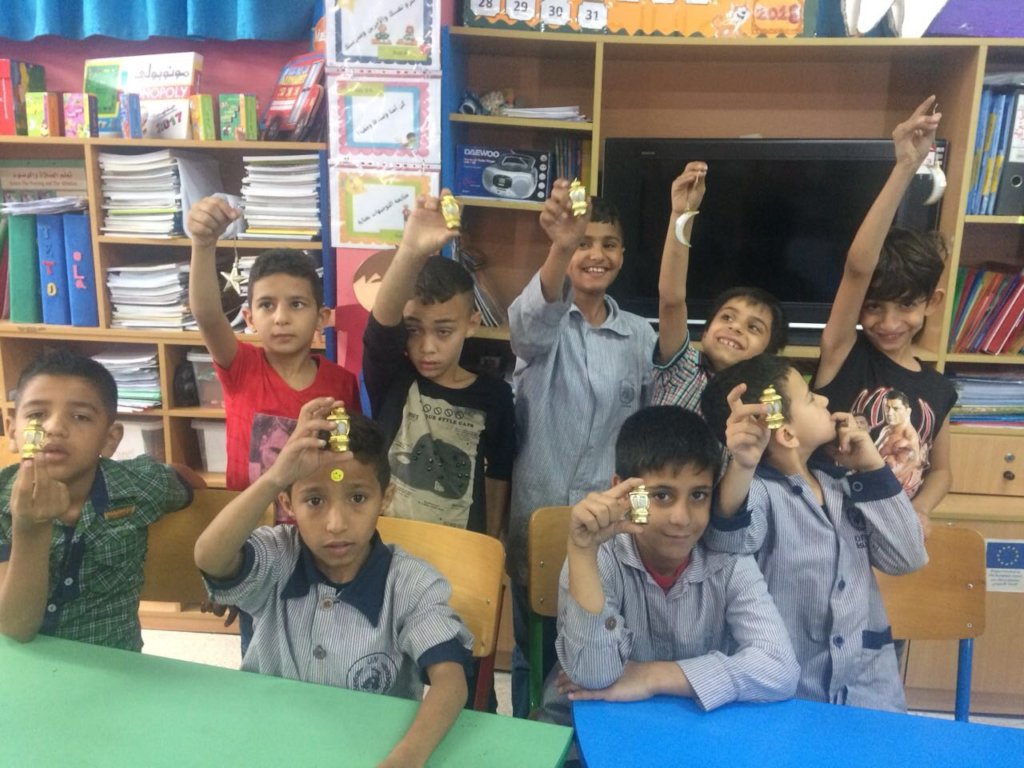By Hiba Hamzi | Program Coordinator
Background during and after the implementation of the project; Seven years into the Syrian conflict, Lebanon remains at the forefront of one of the worst humanitarian crises of our time and has shown exceptional commitment and solidarity to people displaced by the war in Syria. As of October 2017, the Government of Lebanon (GoL) estimates that the country hosts 1.5 million Syrians who have fled the conflict in Syria (including 997,905 million registered as refugees with UNHCR), along with 34,000 Palestine Refugees from Syria (PRS), 35,000 Lebanese returnees, and a pre-existing population of more than 277,985 Palestine Refugees in Lebanon. The vulnerabilities of each of these groups have different root causes, requiring the overall response strategy to include a multifaceted range of interventions from emergency aid to development assistance.
Finally, As the Syrian crisis continues into its sixth year with no end in sight, the future of Syria and it’s people remains unknown. More than four million Syrians have fled the war to become refugees in the neighboring countries in the Middle East and North Africa (MENA) region. The majority of the refugees reside in neighboring countries within the region. Before the war, an estimated 20 percent of Syrian young people were enrolled in tertiary education (EU Regional Trust Fund in Response to the Syrian Crisis, 2016), but as the war continues, Syrian refugee youth face barriers accessing tertiary education in the countries in which they seek refuge.
Naba’a Achievements; During the last period, are highlighted as followings;
- Drop out and at risk children enrol in after school program, and children with learning difficulties enrol in accelerated learning program; Nabaa’ provided inclusive education for boys and girls of school age (6-12 years) in three Palestinian camps in Lebanon, “Ein El Helwe camp”, “Rashidieh camp”, “Nahr Al Bared camp, Borj Al Shamali, El Buss camps and Qasmieh gathering” inside Nabaa’ centers, “In line with UNRWA's educational reform to support the education of refugees children from Syria, Palestinians or Syrians. Taking into consideration, the coordination between Nabaa’ and UNRWA regarding Nabaa’ remedial teachers that have been worked inside 8 of UNRWA schools to follow the same rules of UNRWA teachers.
Regarding primary level, where we worked on coordination and effort with 8 schools noted that around 6479 girls and boys have been benefited from this program. Where 632 Palestinian refugee children from Syria and Syrians who are out of school have benefited from the Accelerating Learning program and we’ve worked to facilitate their integration into UNRWA schools or in Lebanese public schools in coordination with the Education Committee, which is administered by the High Commissioner for Refugees and UNICEF. Moreover, a campaign under the title of “Back to School campaign” implemented in coordination with UNICEF have reached about 663 children from different nationalities, knowing that 58 children were referred to school.
- Caregivers, parents, teachers and local community members participate in the training and awareness activities; Establishing Parents committee in each Naba’a center. These committees were trained and empowered on different issues related to (Child Rights, positive parenting, Importance of Education, Child Protection, how to communicate with their children in difficult circumstances, how to address their children needs particularly in education). Each committee consists of 10 persons in each center, the main role of the committee is consolidated in the following actions;
CASE STUDY
Introduction; A Child is 11 years old, she is engaged within Naba’a remedial Education program and recreational activities, she is the oldest among her brothers and sisters. A child is very smart and active in her class, but she is suffering from being always shy and afraid, as she has stammer during talking with the people. So that, she lost her self esteem, always crying, isolated as she feel, the others are better than her. It is worthy to note that, this effected negatively her educational achievements, she feels afraid either to read or to answer to the teachers questions and to be involved in any discussion within her colleagues. The child is not able to build friendship with her colleagues and classmates.
Intervention;
Follow up;
It is noticed that the personality of the child is enhanced through her communication with the others, in addition, through her participation in the education program, she started to get high grades in her exams. The child continued her participation in the recreational and psychosocial activities, she feels that her self esteem is enhanced and she started to build friendships.
Links:
Project reports on GlobalGiving are posted directly to globalgiving.org by Project Leaders as they are completed, generally every 3-4 months. To protect the integrity of these documents, GlobalGiving does not alter them; therefore you may find some language or formatting issues.
If you donate to this project or have donated to this project, you can receive an email when this project posts a report. You can also subscribe for reports without donating.
Support this important cause by creating a personalized fundraising page.
Start a Fundraiser

